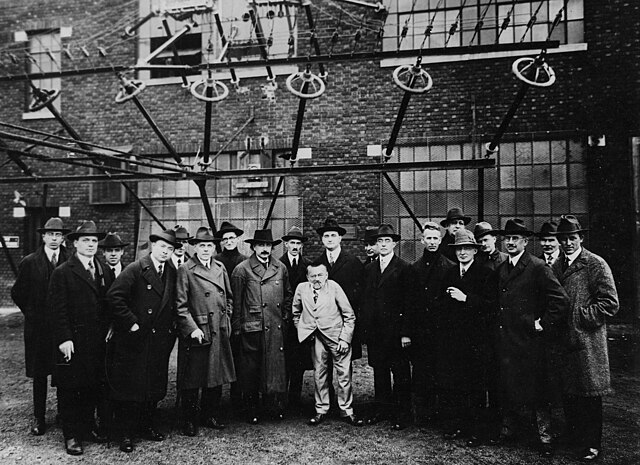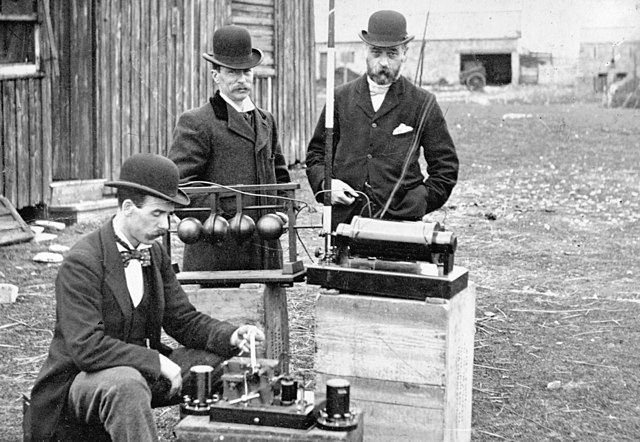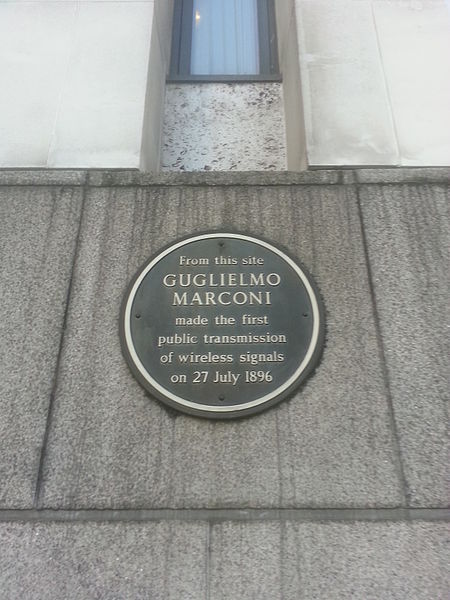The Marconi Company was a British telecommunications and engineering company that did business under that name from 1963 to 1987. Its roots were in the Wireless Telegraph & Signal Company founded by Italian inventor Guglielmo Marconi in 1897, which underwent several changes in name after mergers and acquisitions. The company was a pioneer of wireless long distance communication and mass media broadcasting, eventually becoming one of the UK's most successful manufacturing companies. In 1999, its defence equipment manufacturing division, Marconi Electronic Systems, merged with British Aerospace (BAe) to form BAE Systems. In 2006, financial difficulties led to the collapse of the remaining company, with the bulk of the business acquired by the Swedish telecommunications company, Ericsson.
An employee of the Marconi Company, England, 1906
Marconi Wireless Station in Somerset, New Jersey, in 1921.
New Street Factory in 2018
Guglielmo Giovanni Maria Marconi, 1st Marquis of Marconi was an Italian inventor and electrical engineer, known for his creation of a practical radio wave–based wireless telegraph system. This led to Marconi's being credited as the inventor of radio, and he shared the 1909 Nobel Prize in Physics with Karl Ferdinand Braun "in recognition of their contributions to the development of wireless telegraphy".
Marconi in 1909
Marconi's first transmitter incorporating a monopole antenna. It consisted of an elevated copper sheet (top) connected to a Righi spark gap (left) powered by an induction coil (center) with a telegraph key (right) to switch it on and off to spell out text messages in Morse code.
British Post Office engineers inspect Marconi's radio equipment during a demonstration on Flat Holm Island, 13 May 1897. The transmitter is at centre, the coherer receiver below it, and the pole supporting the wire antenna is visible at top.
Plaque on the outside of the BT Centre commemorates Marconi's first public transmission of wireless signals.







